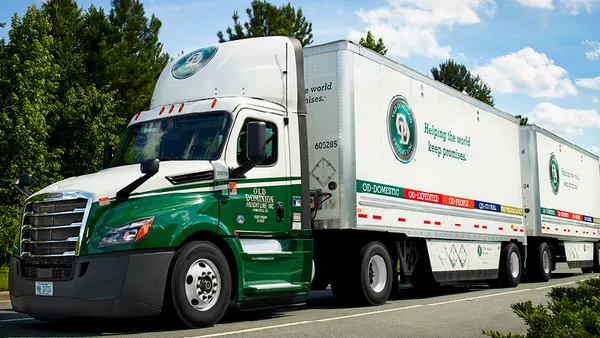The U.S. Commerce Department has initiated a Section 232 investigation to assess imports of medium- and heavy-duty trucks and parts, according to a Federal Register filing.
The investigation, conducted by Commerce Secretary Howard Lutnick, will examine current and projected demand, levels of domestic production, and the role of global supply chains within the trucking sector. It will also examine any potentially unfair trade practices by other countries in relation to truck and part imports.
The Commerce Department opened a public comment period ending May 16 as part of the investigation.
The action is the latest in a slew of similar inquiries recently undertaken by the Commerce Department into sectors such as semiconductors, critical minerals, pharmaceuticals, lumber and copper.
Previously completed Section 232 probes into steel and aluminum imports and cars and auto parts have heralded tariffs.
If the Section 232 investigation for trucks results in new tariffs, it could pressure equipment costs at a time when the industry is already navigating added duties on Mexico and Canada imports and a prolonged freight recession.
"Tariffs have become the topic du jour in boardrooms and beyond, and combining those policy changes with a cloudy macroeconomic picture is a recipe for the uncertainty and caution that characterize current market sentiment," said Andy Dyer, CEO of AFS Logistics, earlier this month. "These conditions do not indicate a shift away from the malaise of soft demand that has shaped domestic transportation markets for quite some time."
Shipper caution fueled by tariffs is already impacting contract rates and volumes for carriers like J.B. Hunt Transport Services and Knight-Swift Transportation, while trucking industry associations have warned about the adverse effects of tariffs generally.
“Tariffs on America’s trade partners have the potential to inhibit the recovery from a freight recession that has been acutely felt by America’s small-business truckers, but it is too early to make predictions on specific downstream economic effects,” an Owner-Operator Independent Drivers Association spokesperson told Trucking Dive earlier this month.














